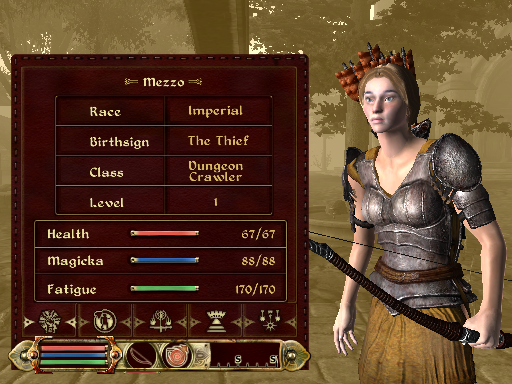Are women romantics?: A Movie that Passes “The Rule”
In response to Hannah Mueller’s essay “Thinking Outside the Frame”, within a discussion of cinema as a technology of gender, she talks about a webcomic where the woman has a specific rule about watching movies. I find intriguing the idea of having this woman’s rule that you only watch movies in which more than two women are presented in non-male oriented discourse. I was trying to think of movies for which that is true. The one that came immediately to me was this really fun movie called Go Fish, by Rose Troche and Guinevere Turner (which I watched as part of a paper project for my Women and Cinema class). Indeed, a number of the movies we watched for that – all directed by females – might fit the criteria. But back to Go Fish. This movie is about a community of women, of lesbians, who live near each other, inter-date, and get together to hang out. They certainly don’t talk about men much. But I do think a good deal of the movie is them talking about other women whom they want to date. Does that pass the rule? They’re still ultimately interested in a connection with another human being. It’s just that person doesn’t happen to be male. If we consider ourselves within a patriarchy, this kind of movie (technology…) would be subverting it, and allowing female discourse. Also it brings up lesbianism/homosexuality, and openly and happily portrays people who don’t entirely fit “the norm”.
Since it does accomplish this subversion of norms and acceptance of difference (and simply because it’s a fun movie), I appreciate the movie. But what about a movie that promotes female discourse about something other than sex/dating/relationships (whether with females or males)? A movie for asexuals, perhaps? Maybe relationship movies are just more fun or interesting to many people than platonic or intellectual movies. Why is that? Is that not the case? Seeing as Go Fish is outside male-focused action/discourse, does it fit the rule? I guess the first thing that I thought of when I heard of the rule was movies where women are talking about life, their emotions, thoughts, interesting things that happen to them, intellectual discussion, the beauty of everyday events and nature, etc. By painting a portrait of women who are still focused on relationships, is this movie continuing some “norm”/gender expectation or standard for women that they will only be interested in relationships (while still accomplishing a good deal of norm-bending)? In other words, is it still upholding the women as romantics ideal?
Comments are closed.

Those are really interesting questions, and I think you’re right to question whether a movie is actually challenging the same huge ideas that we’re challenging in this class (gender, homo/heterosexuality, etc. as categories in themselves) even if it fulfills the Rule. I mean, I think a movie about lesbians directed by a woman definitely plays by the Rule, accomplishing a good deal of norm-bending as you say. (There are also movies that don’t follow the Rule but still challenge ideas of gender, eg Some Like It Hot and Victor Victoria.) But you’re right, if even movies about lesbians only talk about relationships, what’s so different about them? I guess what I want to see is an action/adventure flick with women in all the main roles. Maybe it’s possible: like it says in the comic strip, the last movie she could see was Alien, when the two women talk to each other about the monster.
I actually don’t watch movies that much because my dear husband really likes action/adventure movies, all of which have a romantic plotline that involves taking an otherwise strong and smart woman and turning her into a sex kitten. Bleh. My husband is aware of the problematic nature of this plotline, but it doesn’t stop him from watching the movie. It makes me ill.
I’m about to watch Sex and the City, which probably doesn’t fit The Rule with its focus on fashion and relationships; however, I loved the show for, to some extent, showing that women are interested in the physicality of sex and not just fairy-tale romantic notions of relationships. I also like that a lot of the show focuses on the relationship between the women as much as their relationships with various men. All of them go through typically female problems that show how gender norms complicate their situations: wanting babies, surprise babies throwing careers off, breast cancer, etc. So I like that those issues get raised.